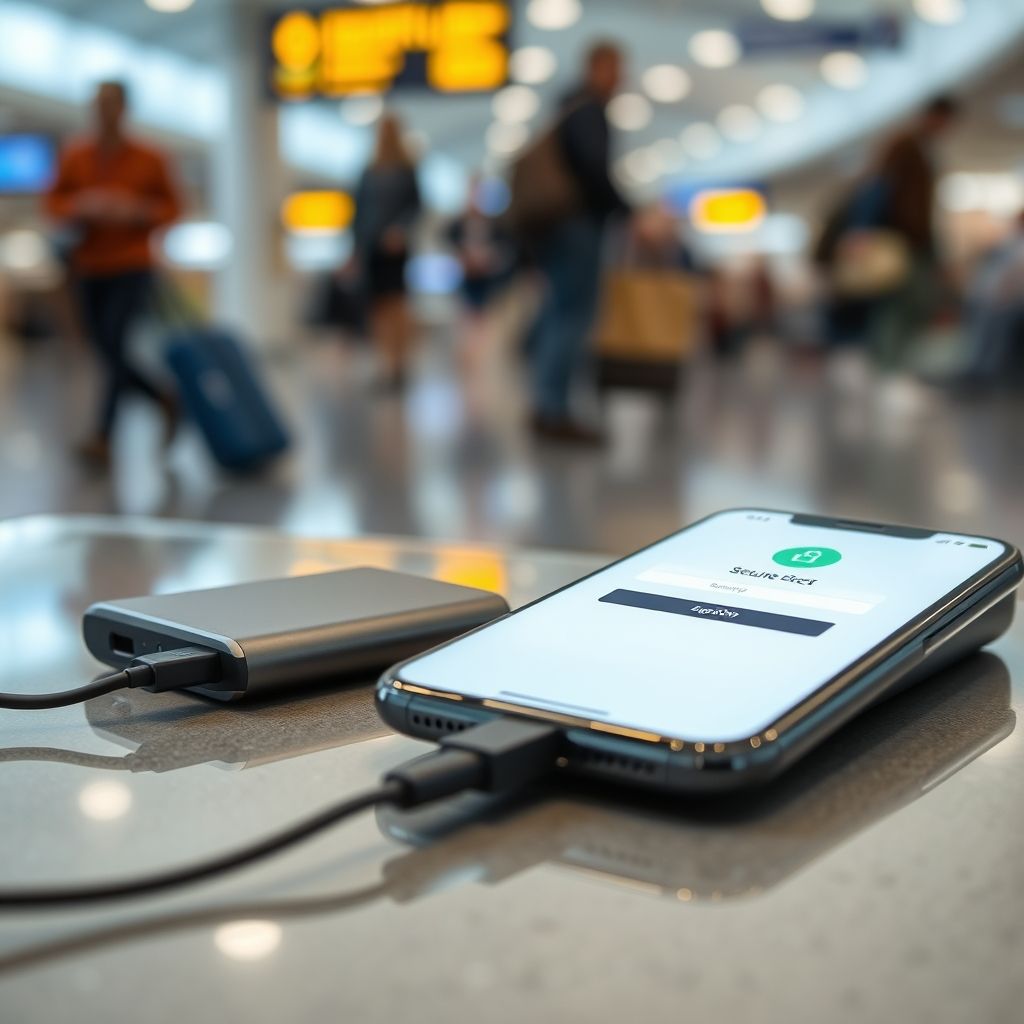TSA Issues Urgent Warning: Protect Your Phone from Airport Cyber Threats

TSA Sounds the Alarm: Airport Smartphone Security Risks
The Transportation Security Administration (TSA) has issued a critical warning for travelers, focusing on the potential security risks associated with smartphone use at airports. As we increasingly rely on our mobile devices for everything from boarding passes to banking, the TSA is urging heightened vigilance to protect against emerging cyber threats. Specifically, the agency is calling attention to the dangers of “juice jacking” and the perils of unsecured public Wi-Fi networks.
The Juice Jacking Threat: What You Need to Know
One of the primary concerns highlighted by the TSA is the threat of juice jacking. This malicious tactic involves the use of compromised USB charging ports to steal data from smartphones and other devices. Hackers can subtly alter these charging stations, installing malware that can extract personal information, including login credentials, photos, and financial data, as soon as a device is plugged in. The TSA’s warning serves as a reminder that seemingly convenient public charging stations, found throughout airports like those in Washington D.C., can pose a significant security risk.
The solution? The TSA strongly recommends that travelers avoid plugging their phones directly into USB ports at airports. Instead, the agency advises using personal power banks or TSA-compliant battery packs. This simple step can significantly mitigate the risk of falling victim to juice jacking. It’s a small change in habit that can make a big difference in protecting your sensitive data.
Public Wi-Fi: A Gateway for Hackers?
In addition to juice jacking, the TSA also cautions against using free public Wi-Fi networks at airports. These networks, while convenient, often lack the robust security measures necessary to protect users’ data from malicious actors. Unsecured Wi-Fi networks can be vulnerable to hijacking, allowing hackers to intercept data transmissions and potentially compromise sensitive information. This is particularly concerning when travelers are conducting online purchases or entering personal information, such as usernames and passwords, on their devices.
The risk is compounded by the fact that hackers can often create fake Wi-Fi hotspots that mimic legitimate airport networks. Once a user connects to a fraudulent network, their data is at risk. The TSA urges travelers to avoid using public Wi-Fi for sensitive online activities. If access is necessary, use a personal hotspot from a mobile carrier or a virtual private network (VPN) to encrypt your data and add an extra layer of security.
Best Practices for Airport Smartphone Security
To stay safe while traveling, consider these recommendations from the TSA:
- Use Your Own Power Bank: Always carry a portable power bank or battery pack to charge your devices.
- Avoid Public USB Charging Ports: Never plug your phone directly into a USB port at the airport.
- Be Wary of Public Wi-Fi: Avoid using unsecured public Wi-Fi networks, especially for financial transactions or entering personal information.
- Consider a VPN: If you must use public Wi-Fi, use a VPN to encrypt your internet traffic.
- Keep Your Software Updated: Ensure your device’s operating system and security software are up to date.
Taking Control of Your Digital Security
The TSA’s warning is a timely reminder of the importance of digital security, particularly for travelers. By taking proactive steps to protect their smartphones and other devices, individuals can significantly reduce their risk of falling victim to cybercrime while on the go. Protecting your data is now an integral part of safe and secure travel.
The TSA is committed to ensuring the safety and security of travelers across the United States, and this recent advisory is a clear indication of the agency’s proactive approach to evolving threats. This is important information for anyone planning on traveling through New York City’s John F. Kennedy International Airport or any other airport worldwide.
Further Reading
For more detailed information, please consult the following sources:
https://www.dhs.gov/travel-alerts
https://www.forbes.com/sites/zakdoffman/2025/05/30/tsa-warns-iphone-and-android-users-you-need-this-at-airport/
https://www.msn.com/en-us/news/technology/tsa-issues-urgent-warning-for-travelers-using-cellphones-at-the-airport/ar-AA1FX1D8




